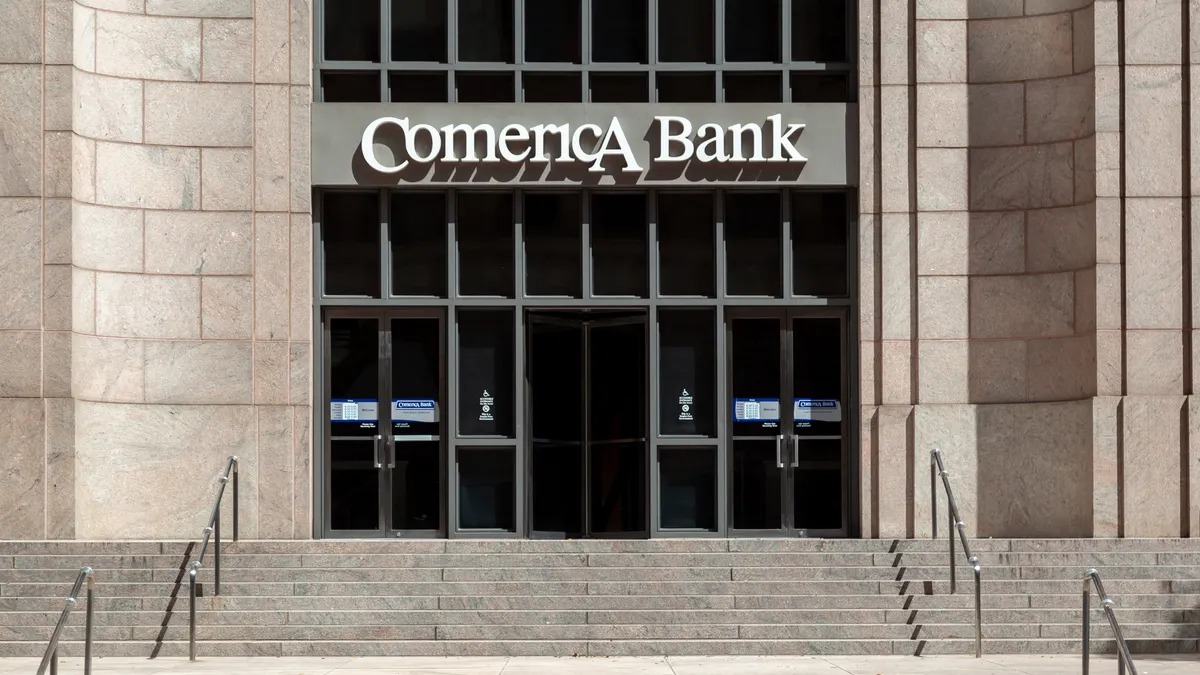After becoming the first challenger bank to obtain a national bank charter in July, Varo is turning its attention to the new products and services it plans to roll out for its customers, Varo Chief Risk Officer Philippa Girling said.
"The last several years the team was really laser-focused on the charter, launching the Varo Bank app and becoming our own entity," Girling said. "That's really taken a lot of our strategic energy, a lot of capital and it's taken a lot of time from our tech team."
The launch of the Varo Bank app, which the company says is imminent, will free up resources to focus on a number of new products, she said.
"All that energy, all that talent is now going to be pivoting on to our customer," Girling said. "We have all of that pent-up energy and strategy that we have been waiting to execute on, so I think you'll see some really exciting things from Varo in the next two to three years of our business plan, where we start to really deliver on some of the things that we've been wanting to do."
The Office of the Comptroller of the Currency's decision to grant Varo a national banking charter was a historic milestone in the industry, with acting Comptroller Brian Brooks saying the moment marked "an evolution in banking and a new generation of banks."
But the journey wasn't easy, nor was it cheap. Varo spent three years working with regulators to ensure it was properly equipped to operate as a national bank, and spent nearly $100 million in the process.
Girling, who joined Varo last year, was front and center for the latter half of the journey, spending the last 18 months building the bank's risk management framework so it met regulatory expectations.
While costly and time-consuming, Varo expects its investment will pay off.
Varo CEO Colin Walsh told Banking Dive last year the ability to operate as a national bank translates into cost savings and allows Varo to offer a larger suite of products, such as credit cards, loans and potentially robo advisory services. Until now, the company has had to rely on state lending licenses to offer loans.
Varo will also be able to offer joint accounts, wire transfers and money market accounts — "things that a fintech really can't do," Walsh said.
"Now we have permission to really build any product that we think would work well for our customer, which is hard to do when you are sitting within the strategy and mission of a sponsor bank," Girling said.
Varo is in the process of transitioning accounts from The Bancorp Bank, which has held its customer deposits since Varo launched banking services in 2017, to a new Temenos platform.
"Now that we are operational, and that risk management framework is up and running, the next couple of years, it will be all about scalability and how to make sure that we stay on top of the risk management framework and keep it growing," Girling said.
A perfect fit
Girling joined Varo after working for more than 20 years in the global financial services industry.
Her previous roles include chief risk officer and executive vice president at Investors Bank, as well as first line business risk officer and senior vice president at Capital One.
Her decision to leave traditional banking to take up a position at the San Francisco-based fintech startup in 2019, was fueled by several factors, she said. One was the lack of diversity she saw in the industry.
"I've spent my whole career in a room that lacks diversity. I've been one of only one or two women in the room. It gets exhausting. You spend your whole career making sure you're being heard, making sure that you have a voice in the room and I was just done with that," she said.
She also wanted to work for an entity that shared her personal values.
"I really was finding it difficult to find an institution or corporation where my personal values aligned with the mission of the organization," she said. "I have worked in organizations that have sound and appropriate mission statements, but the real heart of the company didn't feel like it was aligned with my own personal values, and I really wanted to be involved in something where we were making systemic change, and actually using banking for good. I wanted to find a way to help people who've been underserved or who've been mistreated by the traditional banking sector and offer them an opportunity to have fair access to the tools that they need."
Girling said Varo fit those goals and provided the additional opportunity to innovate within the company, rather than rely on legacy systems.
"I wanted to be part of something that we innovated from the inside out, just start again and find ways to do this business of banking using all the latest technology," she said.
'No shortcuts'
While the role at Varo may have checked all of her boxes, Girling said bringing the bank through the charter process over the past year and a half has been hard work.
"It's not secret, how to do it, it's work. And you have to be willing to do the work that gets you from zero to ready to open a bank, and it takes about three years," she said. "There are no shortcuts."
While the process proved challenging, Girling said she was encouraged by the support the company received from regulators.
"One of the things that was clear at the beginning, and stayed abundantly clear throughout the process is that our regulatory bodies were very supportive and they were really interested in working with us to make sure that we built the right thing," she said. "They weren't going to let us cut any corners, but they wanted to understand how we were doing it."
Among the lessons learned during the process, Girling said, is that innovation and regulation don't have to be at odds with one another.
"It became clear that you can work with people who have never worked in banking and have them go through the change curve to understand what it is to build a corporation — a bank that is regulatorily compliant — and you can do that without crushing the soul of the company that you're in," she said.
"One of the things that would be a worry is that you take the innovation, the enthusiasm and the growth mindset and knuckle it down under the weight of governance. And that wasn't necessary in order for us to build the bank," she added. "That was confirmed during the journey."


















